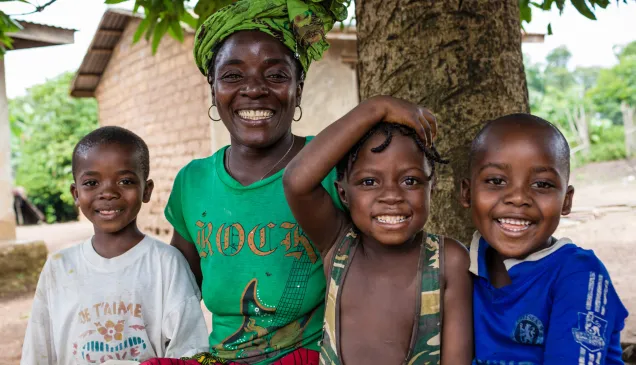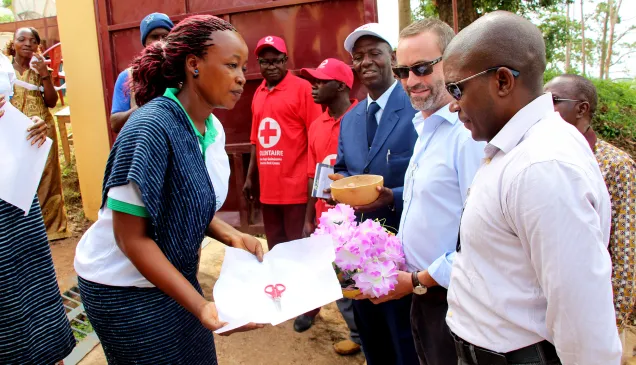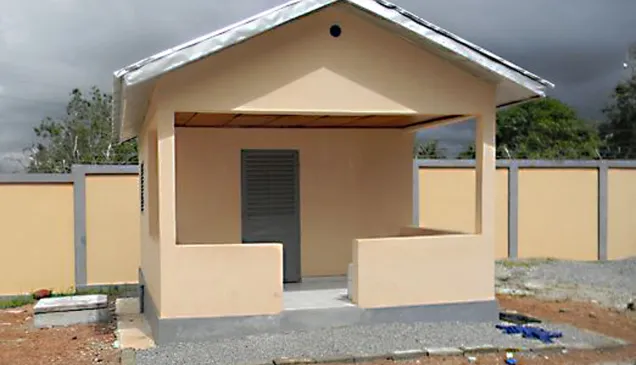Guinea: Fighting and living, despite illness and fear
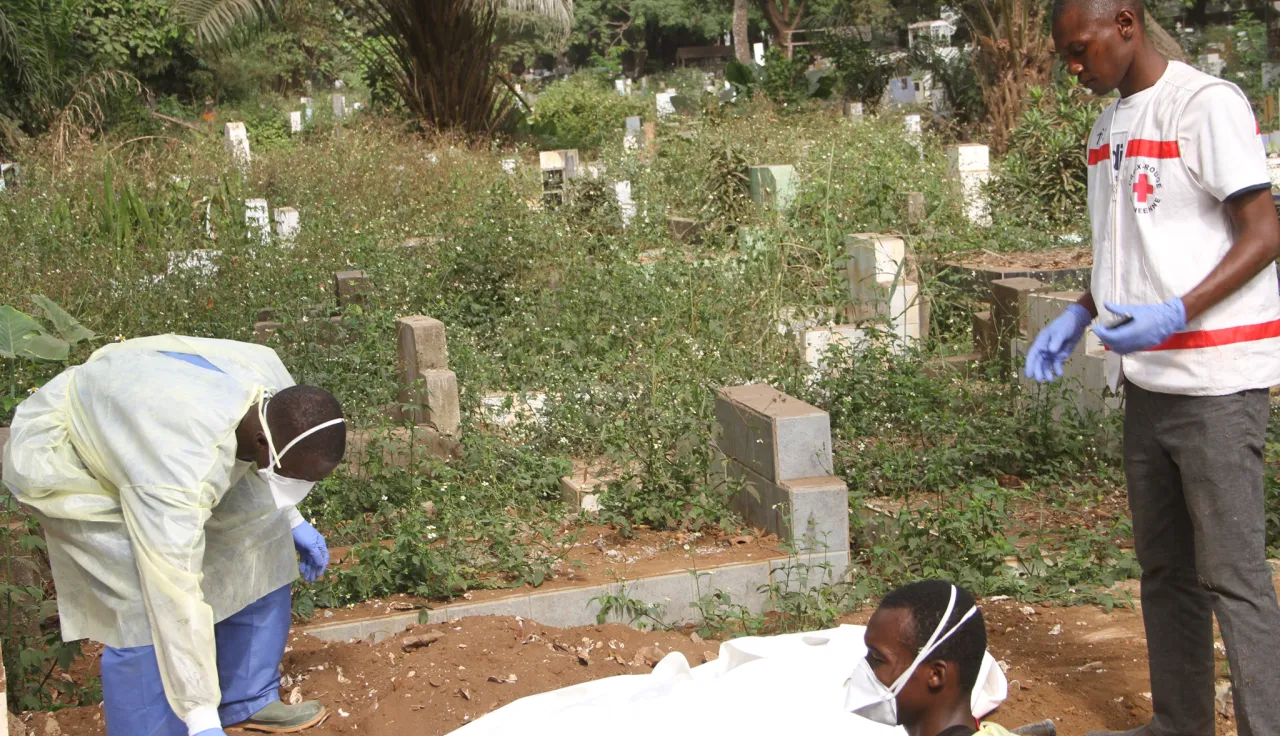
Ebola is still a painful part of life in Guinea. There has been progress on prevention, safe burials and treatment, but new cases are still occurring in both countries. Apart from the often fatal consequences of the epidemic, Ebola is having an impact on the economy and the health system. Society as a whole is feeling the effects, with wives, children and communities having to live without heads of household. Yann Bonzon heads the ICRC's delegation in Guinea. He talks about the progress made, but also about the difficulties and the struggle against Ebola.
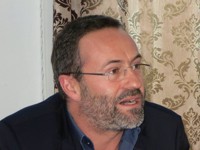 What is the situation regarding Ebola?
What is the situation regarding Ebola?
Things seem to be improving in much the country, especially in Guinée Forestière and the centre, where the number of cases is decreasing. But the situation remains very worrying in some parts of Conakry and around the city, where there has been a major surge in the number of cases since the beginning of March.
Why is this happening, despite all the measures that are being taken?
It's sometimes difficult to follow up on people infected by Ebola, as they continue to move around, passing the disease on to others. And it's difficult to trace the people with whom they've been in contact. This is particularly true in Conakry and the surrounding area. The préfectures where new cases are occurring are often those where there is still considerable hesitation on the part of the communities. This is impeding the work of teams responsible for disinfection, transporting patients and providing safe, dignified burials for those who have died.
What effect is Ebola having on Guinean society?
The fabric of society has been affected, as has the economy. Many families and communities have been hit by the loss of several members, depriving them of the support of their families. The health service was already relatively poor before the crisis. That and farming are two areas that will need to be high priorities in the recovery effort.
Red Cross volunteers have been threatened or even attacked when they were trying to help. Why is that?
Incomprehension and denial on the part of the population regarding this new virus, along with the power of certain local traditions and beliefs, brought about a sudden shift in the way people saw Red Cross volunteers, and indeed all those involved in the fight against Ebola.
The nature of their work – primarily disinfection of contaminated buildings and the safe and dignified burial of the dead – together with the scale of their deployment (over 2,000 volunteers) meant that the Red Cross was suddenly seen not as an organization helping a population in distress, but as gravediggers. This led to volunteers being attacked, sometimes violently, by the very communities they were trying to help.
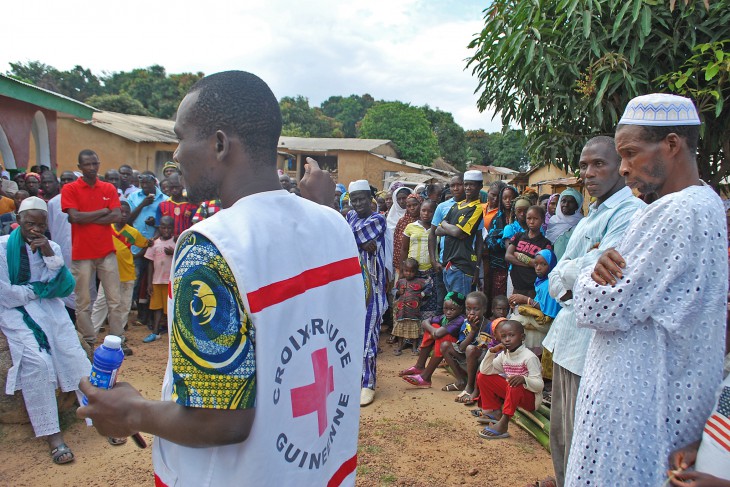
Guinea. A volunteer from the Red Cross Society of Guinea explains Ebola protection measures. [CC BY-NC-ND / CICR]
Is the awareness-raising campaign you are carrying out in cooperation with the Red Cross Society of Guinea having an effect?
We've focused on getting local radio stations to put out messages in various local languages. These radio stations cover about 80% of the country. The positive response, especially in Guinée Forestière, indicates that the radio campaign is bearing fruit. But these awareness-raising and prevention campaigns won't solve everything. More work is needed with the communities affected, and that's exactly what the volunteers of the Red Cross Society of Guinea are doing.
What challenges do you foresee in the near future?
The main challenge will continue to be to contain the disease and stop it spreading in the areas that are still affected, especially in the capital, where population density is very high.
What role is the ICRC playing in the fight against Ebola?
In Guinea, as in other countries, the ICRC is fighting the disease as part of the Red Cross and Red Crescent Movement. From the beginning of the crisis, the ICRC has been working with the Red Cross Society of Guinea, providing material and financial support for the training of almost 300 volunteers in how to prevent the disease, disinfect homes and manage burials in a safe and dignified manner. Given the security problems, the ICRC also trained several hundred volunteers to identify, anticipate and manage the risks associated with the fears and misconceptions that the disease is causing, so as to enhance their access to the victims and keep them safe.
We also made sure that basic preventive measures had been set up in places of detention, so as to prevent the spread of the disease. We made it possible to boost the presence of health personnel in prisons and we've been raising the awareness of inmates and prison authorities regarding both the risks and the precautions that can be taken, such as washing one's hands regularly. Thanks to these efforts, there have so far been no cases of Ebola in Guinean prisons.
What lessons can we already learn from the work of the Red Cross and Red Crescent Movement in Guinea?
It's important to emphasize the extraordinary role that thousands of volunteers from the Red Cross Society of Guinea have played and are continuing to play in the fight against Ebola. As one of the leaders of the National Society said recently, these volunteers are putting their lives on the line every day in order to help their communities. And some of them have paid the ultimate price. The volunteers of the Red Cross Society of Guinea are among the heroes who have been battling this epidemic for more than a year now. They deserve our respect, our admiration and our recognition.

